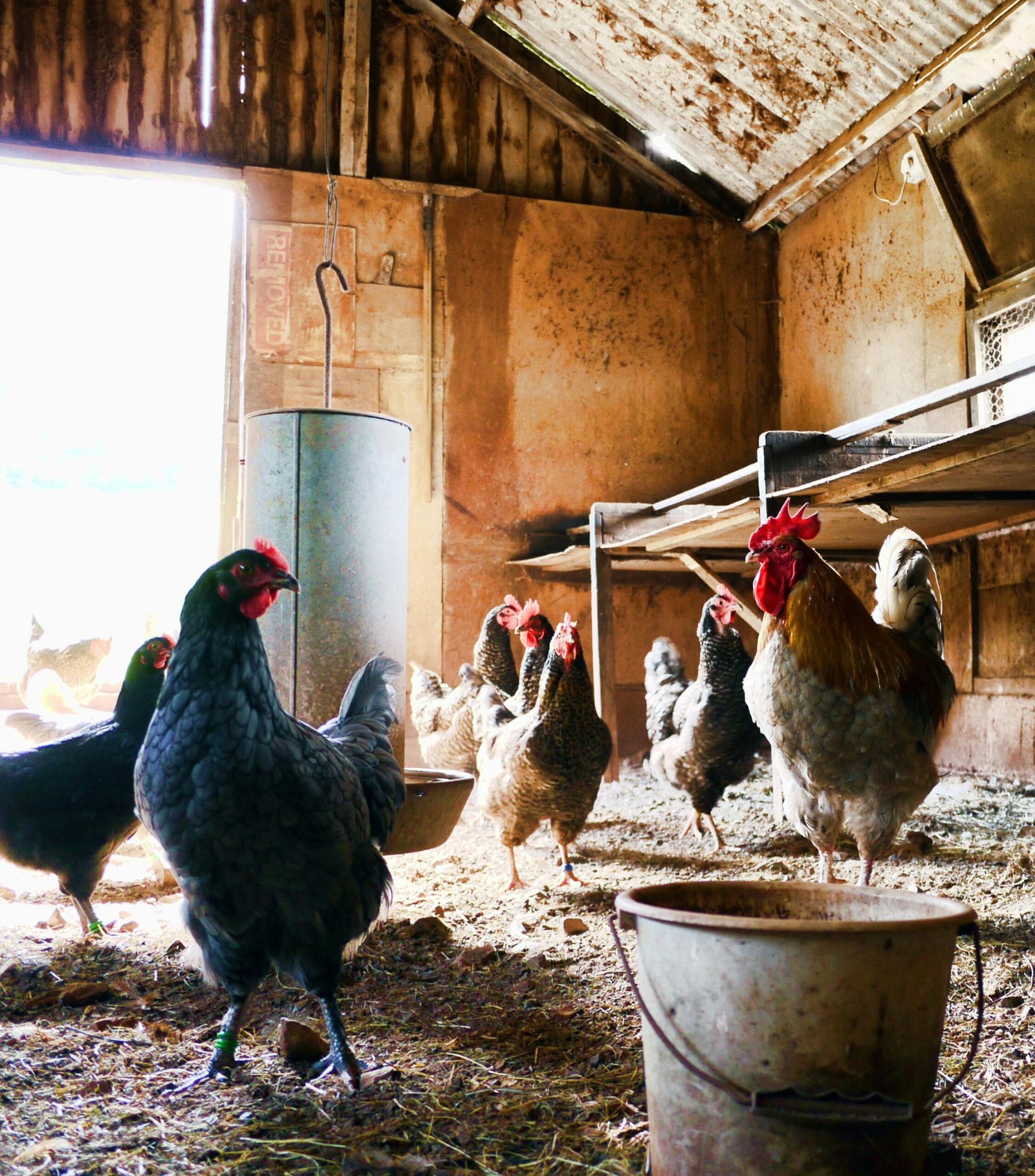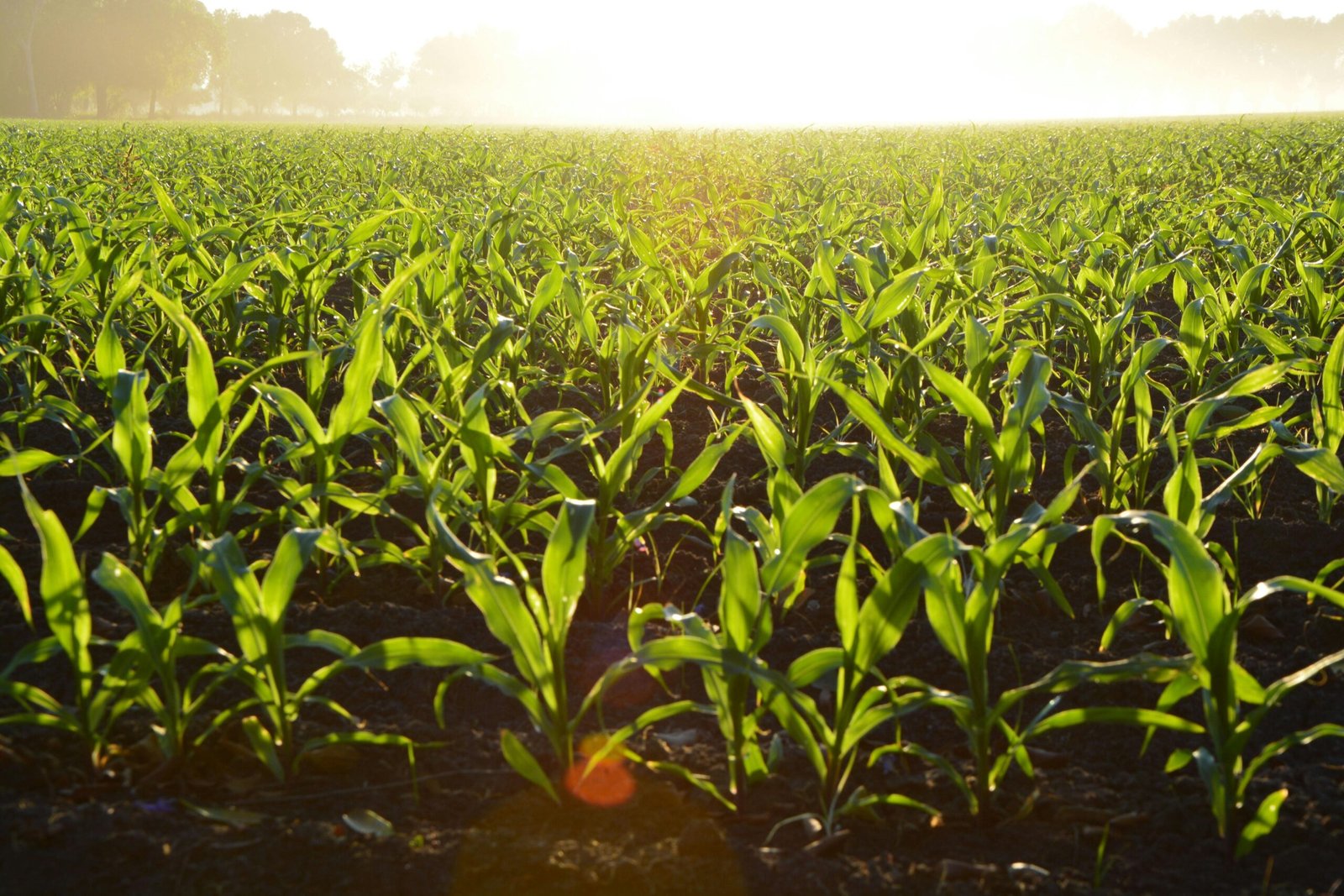Introduction to Agricultural Initiatives in Nigeria for 2024
Agriculture is a cornerstone of Nigeria’s economy, playing a pivotal role in the livelihoods of millions, especially youths and farmers. With approximately 70% of the Nigerian population engaged in agriculture, the sector’s significance cannot be overstated. It provides food security, employment, and raw materials for industries, contributing immensely to the country’s GDP.
Recognizing the vital role of agriculture, the Nigerian government and private stakeholders have launched numerous initiatives aimed at bolstering agricultural productivity and sustainability. These efforts are particularly targeted at youths and farmers who form the backbone of the agricultural workforce. With a focus on enhancing skills, providing financial support, and integrating modern technology, these initiatives are designed to cultivate a robust agricultural sector.
Among the various support mechanisms available, training programs stand out as a cornerstone for skill development. These programs aim to equip farmers, especially the younger generation, with contemporary agricultural techniques and practices, ensuring they remain competitive in an ever-evolving marketplace. Additionally, grants and seed funds provide the much-needed financial impetus to start and expand agric-based businesses, fostering an environment of growth and innovation.
Technology-based initiatives are also a significant part of the support system, introducing modern farming equipment, and precision agriculture techniques. These technological advancements not only boost productivity but also ensure sustainable farming practices that are eco-friendly. Through the integration of such technology, Nigerian agriculture is poised to meet both current and future demands efficiently.
Overall, the concerted efforts from the government and private sectors are instrumental in sustaining and advancing the agricultural landscape in Nigeria. By providing diverse forms of support, these initiatives ensure that Nigerian youths and farmers are well-equipped to overcome challenges, harness opportunities, and contribute significantly to the nation’s agricultural and economic prosperity in 2024.
The Nigerian government has introduced a variety of programs in 2024 to support youths and farmers in the agriculture sector. Below, we explore ten notable initiatives designed to enhance agricultural productivity and sustainability.
National Youth Agricultural Empowerment Scheme (NYAES)
NYAES aims to empower young Nigerians in agriculture by providing them with training, resources, and access to low-interest loans. The program focuses on skill development and technological adoption to improve agricultural practices. Eligibility criteria include being between the ages of 18-35 and having an interest in agriculture. Applicants must submit a business proposal outlining their agricultural plans.
Youth Agripreneurs Programme (YAP)
YAP is dedicated to fostering entrepreneurial skills among youths in agriculture. The program offers training, mentorship, and financial support to young agripreneurs. Applicants aged 18-40 with innovative agricultural ideas can apply through an online application process. Selected participants receive grants and business development services.
Agricultural Development Programme (ADP)
The ADP targets both youths and experienced farmers to enhance agricultural productivity through modern farming techniques. The initiative provides access to seeds, fertilizers, and advanced machinery. Participation requires registration with local agricultural offices, and prioritization is given to those with existing farm operations.
Green Revolution Initiative (GRI)
GRI aims to increase food production by introducing sustainable farming methods. The program focuses on crop diversification, soil health, and water management. Young farmers and women are especially encouraged to participate. The application involves a review of proposed farming methods and sustainability plans.
Farmers’ Cooperative Scheme (FCS)
FCS encourages the formation of cooperatives among smallholder farmers to increase their bargaining power and access to bulk resources. It provides training in cooperative management and bulk procurement of inputs. Membership in a registered farmers’ cooperative is required to benefit from this scheme.
Agri-Business Innovation Centre (ABIC)
ABIC supports agricultural startups by providing incubation services, mentoring, and access to funding. The goal is to foster innovation in agribusiness. Youths aged 20-35 with agricultural startups can apply by presenting their business model and innovation strategy.
Rural Youth Skill Acquisition Program (RYSAP)
RYSAP focuses on equipping rural youths with skills in agriculture and agribusiness. The program offers free training sessions in different farming techniques and value addition. Application is open to rural youths between the ages of 18-30, with a selection process that includes a skills assessment.
Women in Agriculture Empowerment Program (WIAEP)
WIAEP aims to empower women in agriculture by offering training, microloans, and access to markets. The program supports women-owned agricultural projects. Women of all ages involved in agriculture can apply through local agricultural offices.
Agro-Processing and Value Addition Scheme (APVAS)
APVAS emphasizes adding value to raw agricultural products through processing. It provides grants and technical training in agro-processing techniques. Young entrepreneurs and existing farmers can apply by submitting a value addition proposal highlighting their processing plans.
Climate-Smart Agriculture Program (CSAP)
CSAP addresses the challenges of climate change through innovative farming practices. The program includes training in climate-smart techniques and access to resilient crop varieties. Participation is open to all farmers, and the application process involves a demonstration of need and a sustainability plan.
Grants and Seed Funds from Government and Private Bodies
In 2024, numerous grants and seed funds are available for agric-based businesses in Nigeria, empowering youths and farmers to enhance their agribusiness ventures. This section delves into ten notable funding opportunities, delineating the financial assistance, eligibility requirements, and application procedures for each.
Anchor Borrowers Programme (ABP)
The Anchor Borrowers Programme (ABP) is a Central Bank of Nigeria initiative aimed at creating economic linkage between smallholder farmers and reputable large-scale processors. Farmers can access loans for input and cash but must repay with harvested produce. Eligible candidates must be members of a registered cooperative, willing to adopt Good Agricultural Practices (GAP). Applications are typically processed through participating financial institutions.
Nigeria Incentive-Based Risk Sharing System for Agricultural Lending (NIRSAL)
NIRSAL facilitates increased lending to the agriculture sector by de-risking the agricultural value chain. Farmers, especially small and medium enterprise owners, benefit from loan guarantees and interest rebates. Eligibility criteria include valid registration with the Corporate Affairs Commission and detailed business plans. Applications can be made through commercial banks partnered with NIRSAL.
Tony Elumelu Foundation (TEF) Agribusiness Grant
The Tony Elumelu Foundation Agribusiness Grant offers $5,000 to each recipient, supporting African entrepreneurs in agribusinesses. The grant targets innovative businesses with a viable growth plan. Eligible applicants must be citizens of an African country, have an agribusiness registered with CAC, and demonstrate scalable business history. The application process involves submitting a detailed business proposal online.
Development Bank of Nigeria (DBN) Grants
The DBN provides grants to agribusinesses focusing on technological innovation and sustainable agriculture. Eligible beneficiaries are agricultural SMEs with a strong impact on local communities. Interested farmers need to complete an online application, including a comprehensive business plan and proof of business registration.
Fadama Development Project Grants
Fadama grants aim to alleviate rural poverty by empowering farmers through financial support for equipment and input purchases. Eligibility hinges on membership in a Fadama User Group. Applications require submitting group-based project proposals substantiating the viability and impact of the planned agribusiness.
Youth Entrepreneurship Support (YES) Program
Sponsored by the Bank of Industry, the YES Program targets young entrepreneurs in the agriculture sector, offering extensive training and seed funding up to ₦5 million. Eligibility encompasses Nigerian youth aged 18-35, possessing innovative agribusiness ideas. Application involves a business plan submission followed by a panel interview.
Green Agribusiness Fund (GAF)
The GAF, supported by international donor agencies, funds environmentally sustainable agriculture projects. Eligible businesses must demonstrate a commitment to eco-friendly farming practices. Applications entail a detailed proposal submission outlining environmental sustainability plans and anticipated impacts.
Central Bank of Nigeria’s Agri-Business Small and Medium Enterprise Investment Scheme (AGSMEIS)
AGSMEIS provides up to ₦10 million in loans to agribusinesses, emphasizing youth-led enterprises. Eligibility requires participation in Entrepreneurship Development Institutions (EDIs). Applications are completed through accredited deposit money banks and include a robust business plan.
Small and Medium Enterprises Development Agency of Nigeria (SMEDAN) Grants
SMEDAN offers grants to SMEs in the agricultural sector, focusing on business scalability and innovation. Eligibility involves verified business registration and feasible expansion plans. Application includes filling an online form and presenting a structural business plan.
National Agricultural Seed Council (NASC) Support Fund
NASC provides seed funds to farmers engaged in certified seed production and distribution. Eligible recipients are accredited seed producers registered with NASC. Applications demand submitting a detailed proposal highlighting seed production capacity and projected outcomes.
How to Apply and Maximize Opportunities in Agric-based Businesses
To successfully apply for various government programs, grants, and funds targeted at Nigerian youths and farmers in agric-based businesses, it is crucial to follow a structured approach. Start by thoroughly researching the available opportunities and understanding the specific requirements for each program. Ensure you meet the eligibility criteria, which often include age, educational background, and sector-specific conditions.
Next, prepare a comprehensive and convincing application. This starts with writing a robust business plan that clearly outlines your business idea, market analysis, strategic approach, and financial projections. A well-drafted business plan not only increases your chances of securing funding but also provides a roadmap for the successful implementation of your project. Seek guidance from agricultural experts or business consultants if necessary.
Practical tips on applying effectively include maintaining up-to-date documentation, such as identification, financial records, and any relevant certifications. Pay attention to deadlines and ensure your application is submitted on time. Utilize online platforms and governmental portals, which often provide tutorials and additional resources to assist applicants.
Once you secure funding, it is vital to maximize the impact of these opportunities through effective project management. Leverage modern technology to streamline operations, increase efficiency, and improve productivity. For instance, implementing precision farming techniques can lead to better yield outcomes and resource optimization. Furthermore, networking with other beneficiaries and stakeholders can provide valuable insights, shared experiences, and potential collaborations.
Continuous learning is another critical success factor. Regularly attend training sessions, workshops, and seminars to stay updated with the latest advancements in agriculture and business management. Utilizing online courses and resources can also enhance your knowledge and skills.
To inspire and motivate, consider the success stories of previous beneficiaries who have thrived by tapping into these opportunities. Their journeys illustrate the potential for growth and success in agric-based businesses, reinforcing the importance of strategic planning, continuous learning, and effective utilization of resources.
By following these guidelines and taking a proactive approach, you can significantly enhance your chances of benefiting from government initiatives, paving the way for a successful and sustainable agric-based business.



